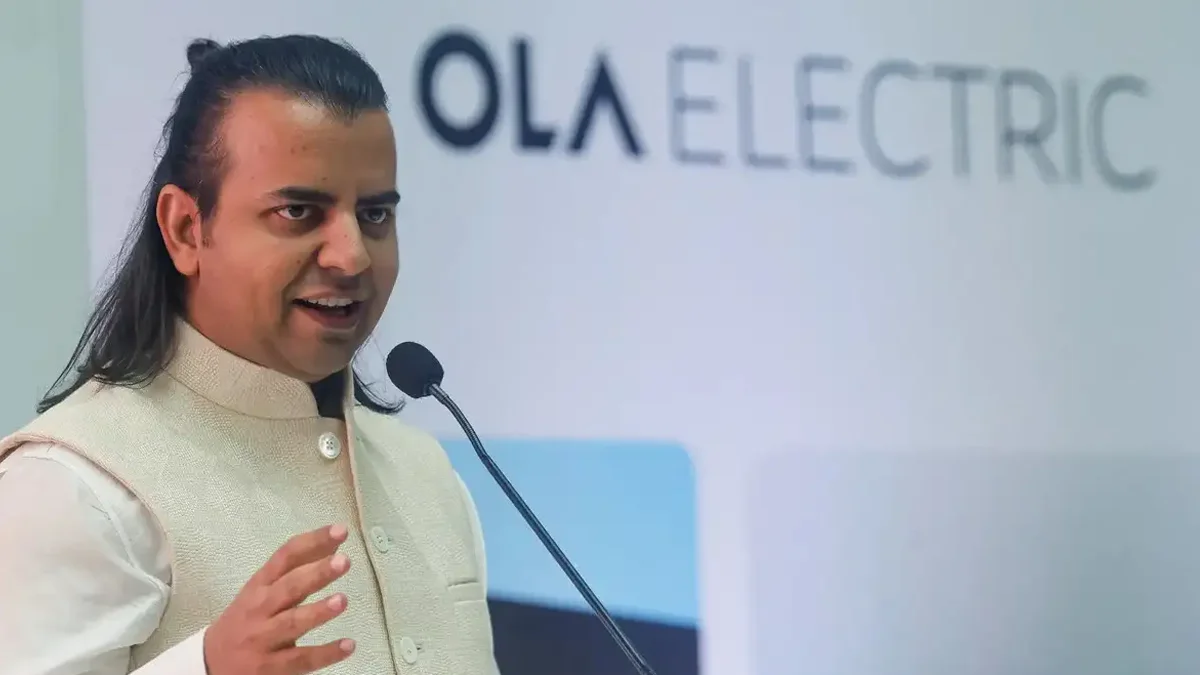Necessary Always Active
Necessary cookies are required to enable the basic features of this site, such as providing secure log-in or adjusting your consent preferences. These cookies do not store any personally identifiable data.
|
||||||
|
||||||
|
||||||
|

Two major early investors in Ola Electric, Z47 and hedge fund Tiger Global Management, have decided to reduce their ownership in the electric vehicle company, MSN reported. The stake sale in Ola Electric by prominent investment firms signals changing investor sentiment toward the EV startup as it faces various operational and market challenges.
Z47 sold 1% of its stake in Ola Electric during the April-June quarter, making INR187 crore. Z47 now owns about 1.93 percent of the company, which equals around 8.5 crore shares. Based on the per share price of Rs 41, the value of this stake is about Rs 347 crore.
By the end of June 2025, Tiger Global Management owned 3.24 percent, down from 3.45 percent three months earlier. Through its Internet Fund III, Tiger Global now holds shares worth INR585 crore in the electric vehicle company.
The stake sale by Tiger Global in Ola Electric represents a significant move by one of the company’s earliest and most prominent backers. Tiger Global, known for its investments in high-growth technology companies, has been reducing its position in the electric scooter manufacturer over recent months.
Tiger Global originally invested in Ola Electric during its early funding rounds when the company was still developing its electric vehicle technology and manufacturing capabilities. The investment firm saw potential in India’s growing electric vehicle market and Ola’s brand recognition from its ride-hailing business.
The decision to reduce stakes comes as Tiger Global reassesses its portfolio amid changing market conditions and evolving investor preferences. The firm has been selectively trimming positions in various technology companies while focusing on investments with stronger near-term prospects.
Similarly, Z47’s exit from Ola Electric marks another major investor reducing its exposure to the electric vehicle company. Z47, formerly known as Matrix India, has been an active investor in the Indian startup ecosystem and has shown early confidence in Ola Electric’s business model.
The investment firm initially backed Ola Electric based on the company’s ambitious plans to capture a significant share of India’s two-wheeler market through electric scooters. Z47 believed that Ola’s existing brand strength and technology capabilities would give it a competitive advantage.
However, the firm’s decision to exit suggests concerns about the company’s execution and market performance. Z47’s portfolio management strategy appears to be shifting focus toward companies showing stronger operational metrics and clearer paths to profitability.
The investor exits coincide with various Ola Electric’s performance issues that have emerged since the company’s public market debut and commercial operations began. The company has faced challenges including production delays, quality control problems, and customer service complaints.
Manufacturing issues at Ola Electric’s facilities have led to delivery delays for customers who pre-ordered scooters. These operational problems have affected the company’s reputation and raised questions about its ability to scale production efficiently.
Ola Electric’s operating revenue for the first quarter also dropped sharply compared to the same period last year, and its losses increased. The company reported a net loss of 428 crore rupees on revenue of 828 crore rupees for the quarter ending June 30. This loss was higher than the 347 crore rupees loss reported a year earlier, but less than half of the 870 crore rupees loss recorded in the January to March quarter. The company had posted operating revenue of 611 crore rupees in the March quarter.
Bhavish Agrawal said, “We have transitioned from aggressive penetration to a more balanced, profitable growth strategy. The industry is consolidating after a hyper-growth phase and will see another surge in the near future. Until then, it’s time to consolidate operations.”